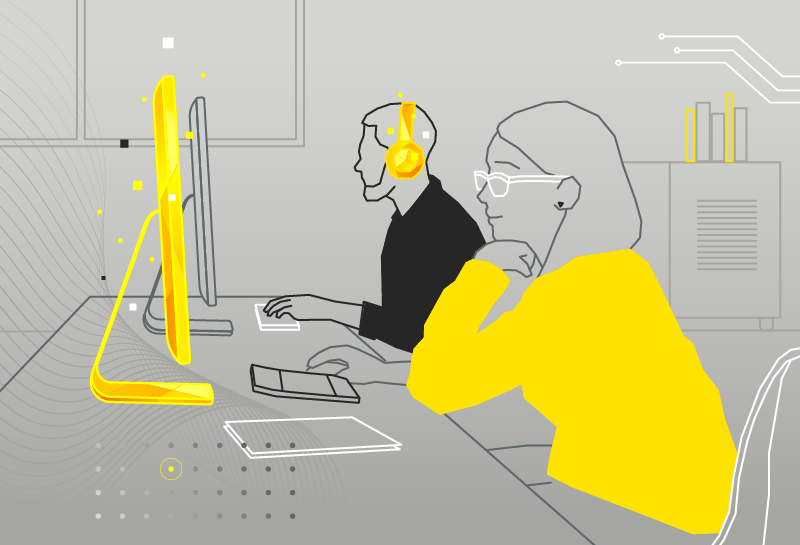H2O.ai Academic Program
Empowering Students and Universities in AI and Machine Learning
Overview
Bringing the leading machine learning solution to technical, business and social science degree programs
Join us in Democratizing AI across any kind of degree program and shaping the future of higher education by becoming a member of the H2O.ai Academic Program. Program members have access to a wealth of resources including free non-commercial use of software licenses for education and research purposes; data sets and training materials; and collaboration with other members, makers at H2O.ai as well as partners and customers around the world. You can also collaborate with us at any of the H2O AI World conferences; co-host one of our popular meetups; or invite our highly skilled data science experts and Kaggle Grandmasters as a guest lecturer to one of your classes. The possibilities are endless, and the choice is yours!
H2O.ai provides impressively scalable implementations of many of the important machine learning tools in a user-friendly environment. Allowing for free academic use sets a generous example for commercial software developers — it is also the way forward in the era of open-source software.”
Trevor J. Hastie John A. Overdeck Professor of Mathematical Sciences Professor of Statistics Professor of Biomedical Data Science Department of Statistics Stanford University USA


Using H2O.ai in our AI curriculum gives students a better understanding of machine learning techniques in a shorter period of time. Especially the ability to visualize and explain data inputs and explainable model outputs opens up machine learning to non-technical students in business degrees.”
Michael Bliemel Ph.D M.M.S B.Sc Dean Professor of Management Information Systems Faculty of Business and Information Technology University of Ontario Institute of Technology Canada


I've been using H2O and autoML in my research on advertising effectiveness. Now with the Academic Program, we can use Driverless AI as an introduction to AI, and an illustration of modern enterprise use of AI for analyzing cross-sectional data, time-series data and NLP problems for teaching students: A dream come true!”
Dr John Williams BCom, PGDipCom, MCom, DipGrad (Statistics), PhD Senior Lecturer Otaga Business School, Department of Marketing New Zealand




For Professors
Enrich your curriculum with hands-on data science labs
Whether you are teaching R and Python to scientists and engineers or want to enrich your non-technical degree programs with a machine learning hands-on lab, we have the right solutions for you: choose between our opensource H2O offering for the more technically included students, or level the playing field with our ground-breaking H2O Driverless AI for automatic machine learning.
Driverless AI enables a fully automatic machine learning workflow from data analysis, to automated predictions, and automatic model explanations. An ideal solution to teach AI/ML without the need for programming!


For Students
Jump start your data science or business career
Machine learning is becoming the integral fabric in all of science and business. Hence, being well versed in this exciting and growing field is becoming the key requirement in many jobs and a key ingredient for a successful start into your career.
Don’t wait and apply for your personal membership in the H2O.ai Academic Program, the fastest and easiest way to gain this valuable, future proof skill. Even better, with the rapidly growing footprint of H2O.ai solutions across industries, you will open exciting internship opportunities with one of our customers or at H2O.ai. Don’t wait and get started now!
Chat
Chat with professors and students about
data science in academia


Share Knowledge
Swap tutorials and resources with your peers. Wrote a cool Driverless AI experiment? Share it here. Ask questions and get answers!


Build Together
Find people to work on projects with. Get feedback on your experiments and models.


Discuss Trends
Discuss where the field is going. Learn about the latest developments and how they're being used.
Meet the Slack Community hosts
Discuss H2O, AI technologies and teaching them in the #academic slack channel
Already a member? Log In


Arno Candel


Rafael Coss


Eric Gudgion


Feng Bai


Karthik Kannappan


Lauren DiPerna


Megan Kurka


Stefan Pacinda


Thomas Ott


Tom Kraljevic


Venkatesh Yadav
- Carousel 1
- Carousel 3
- Carousel 5
H2O broadly used in Academia today
- Courses
- Research Papers
Request Demo
We are revamping the H2O.ai Academic Program to provide the full proud suite of the H2O AI Cloud to the program. Once the updated program is in place, we will notify the folks who have reached out to get additional information about the next steps. You will be shown an H2O AI Cloud demo by an H2O team member.





